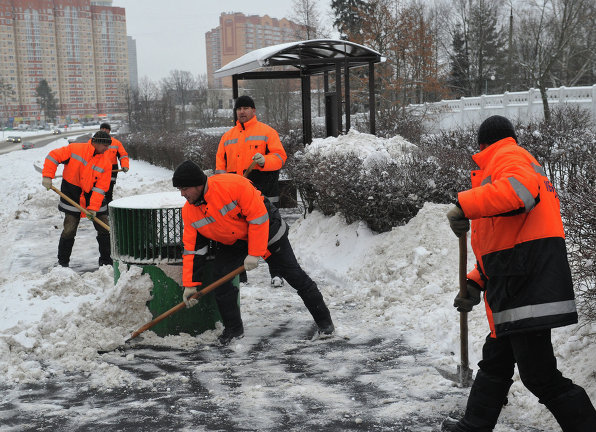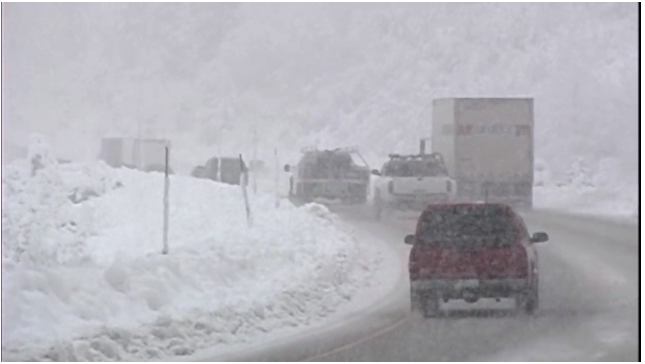There is a such thing as being too cold!
Is it really possible for a person to be “too cold”? Yes! Based on where you are in the country, extreme cold weather conditions can vary. Being in a cold environment forces the body to work twice and sometimes three times harder to maintain its temperature.
According to OSHA, due to the shifting of blood flow within the body, cold environments can expose your body to cold-induced illnesses and injuries such as hypothermia, frostbite and trench foot.
 The United States averages 1,301 deaths per year due to ailments related to the exposure of excessive natural cold, such as hypothermia. Hypothermia is the condition of having an abnormally low body temperature, typically one classified as dangerously low. Not taking the necessary precautions while working in cold can place your employees at risk.
The United States averages 1,301 deaths per year due to ailments related to the exposure of excessive natural cold, such as hypothermia. Hypothermia is the condition of having an abnormally low body temperature, typically one classified as dangerously low. Not taking the necessary precautions while working in cold can place your employees at risk.
OSHA recommends the following tips to help you protect your workers during this cold season:
- Recognize the environmental and workplace conditions that may be dangerous.
- Learn the signs and symptoms of cold-induced illnesses and injuries and what to do to help workers.
- Train workers about cold-induced illnesses and injuries.
- Encourage workers to wear proper clothing for cold, wet and windy conditions, including layers that can be adjusted to changing conditions.
- Be sure workers in extreme conditions take a frequent short break in warm dry shelters to allow their bodies to warm up.
- Try to schedule work for the warmest part of the day.
- Avoid exhaustion or fatigue because energy is needed to keep muscles warm.
- Use the buddy system – work in pairs so that one worker can recognize danger signs.
- Drink warm, sweet beverages (sugar-water, sports-type drinks) and avoid drinks with caffeine (coffee, tea, sodas or hot chocolate) or alcohol.
- Eat warm, high-calorie foods such as hot pasta dishes.
- Remember, workers face increased risks when they take certain medications, are in poor physical condition or suffer from illnesses such as diabetes, hypertension or cardiovascular disease.
Mastery offers a selection of courses to help you prepare employees to recognize and protect themselves against the hazards of winter weather. For example, Mastery’s Cold Stress: Working Safely in Cold Weather, Working Safely in Cold Weather and Defensive Driving: When Good Weather Goes Bad will help your company provide employees with instructions on the effects of  cold stress, how to identify cold stress, the importance of wearing proper protective clothing and the impact of maintaining a solid diet in efforts to keep one’s energy levels high.
cold stress, how to identify cold stress, the importance of wearing proper protective clothing and the impact of maintaining a solid diet in efforts to keep one’s energy levels high.
For a complete list of Mastery courses on a range topics such as weather preparedness and driving safety, visit www.mastery.com